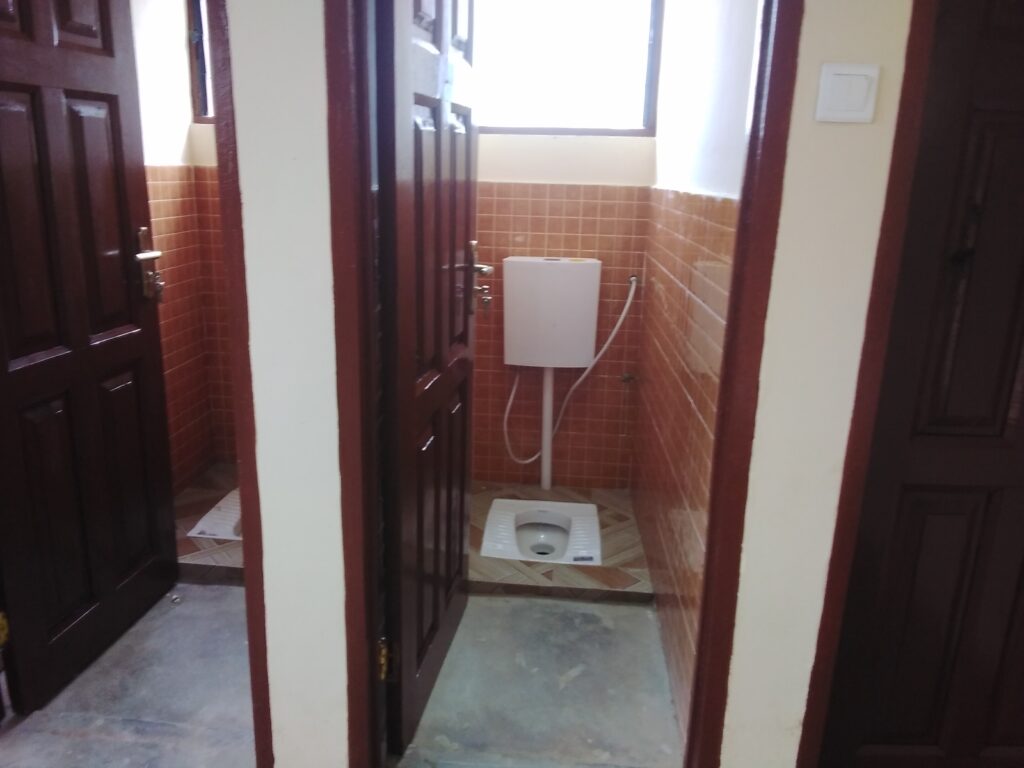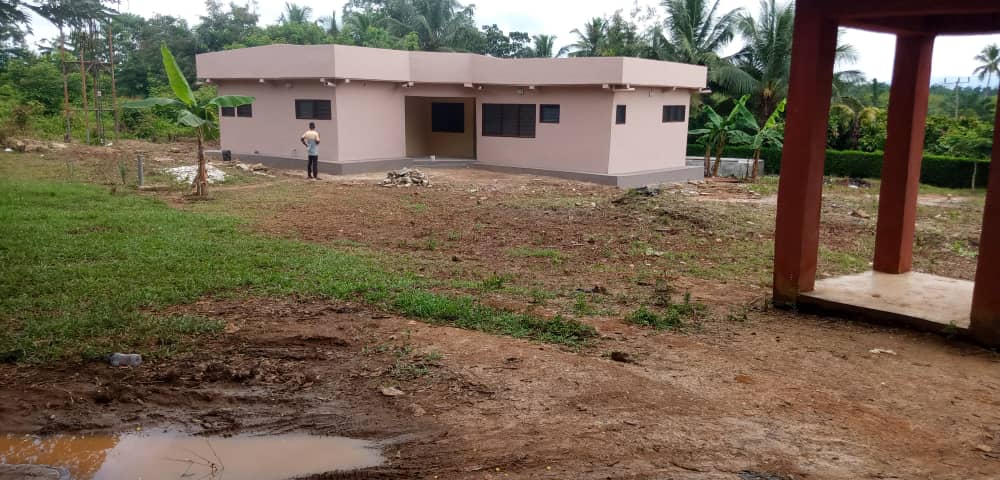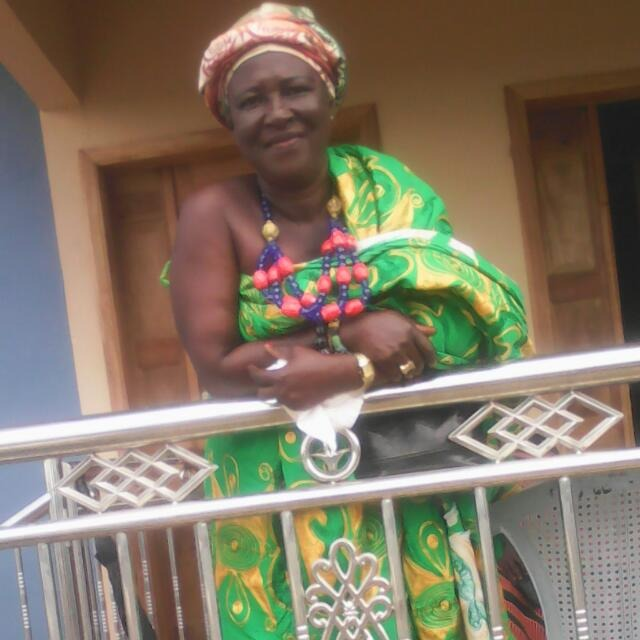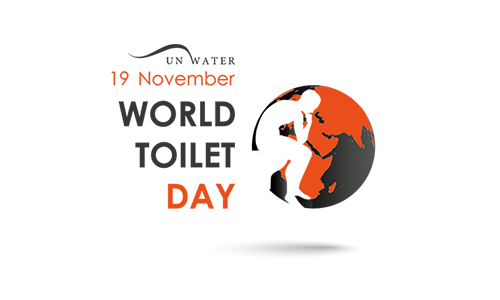Today is World Toilet Day, a day to remind us all that nearly half the world’s population live without a ‘safely managed sanitation service’: a toilet, not shared with other households, that either treats or disposes of human waste on site, stores it safely to be emptied and treated off-site, or connects to a functioning sewer. When some people in a community do not have safe toilets, everyone’s health is threatened. Poor sanitation contaminates drinking-water sources, rivers, beaches and food crops, spreading deadly diseases among the wider population.
This was also the case for 1,400 citizens in Abomosu community in Ghana. The community’s toilet had broken down, which in turn increased open-defecation and threatened the community’s health benefits from access to clean drinking water through a project run by Grundfos’ Ghana.
Community Grant restores toilet facility
In March 2021, the Foundation granted EUR 25,000 toward restoration of the community’s public toilet. With support from Grundfos Ghana, the community toilet has since been reconstructed and connected to the water lines.
We will take good care of it
The community is excited about the upgraded water and sanitation facilities which is handed over officially in November 2021.
“Being a woman myself, I know the indignity women and girls in particular experience in managing menstrual health when there is no sanitation facility. This newly refurbished facility is a great relief to me and my community! We will take good care of it so that it can serve us for a very long time,” says Nana Konadu Kontie, Queen Mother (a traditional female leader) of Abomosu.
Toilets drive improvements in gender equality, education, economics and the environment. They protect women and girls’ dignity, safety and health, especially during menstruation and pregnancy. For every $1 invested in basic sanitation up to $5 is returned in saved medical costs and increased productivity, and jobs are created along the entire service chain. In the coming years, COLANDEF will measure the socio-economic benefits of the water and sanitation improvements of Abomosu community.

Inside the new toilet facility you find both cubicles with squat-on types, water closets, and hand-washing facilities for improved hygiene. Photo: COLANDEF
We can’t reach SDG6 without toilets
Sustainable Development Goal 6 is to ‘ensure availability and sustainable management of water and sanitation for all’ by 2030. Governments must work four times faster to ensure toilets for all by 2030. We urgently need massive investment and innovation to quadruple progress all along the ‘sanitation chain’, from toilets to the transport, collection and treatment of human waste. The public and private sectors must work with unserved communities to create sustainable sanitation systems that work for them.
- Learn more at worldtoiletday.info




